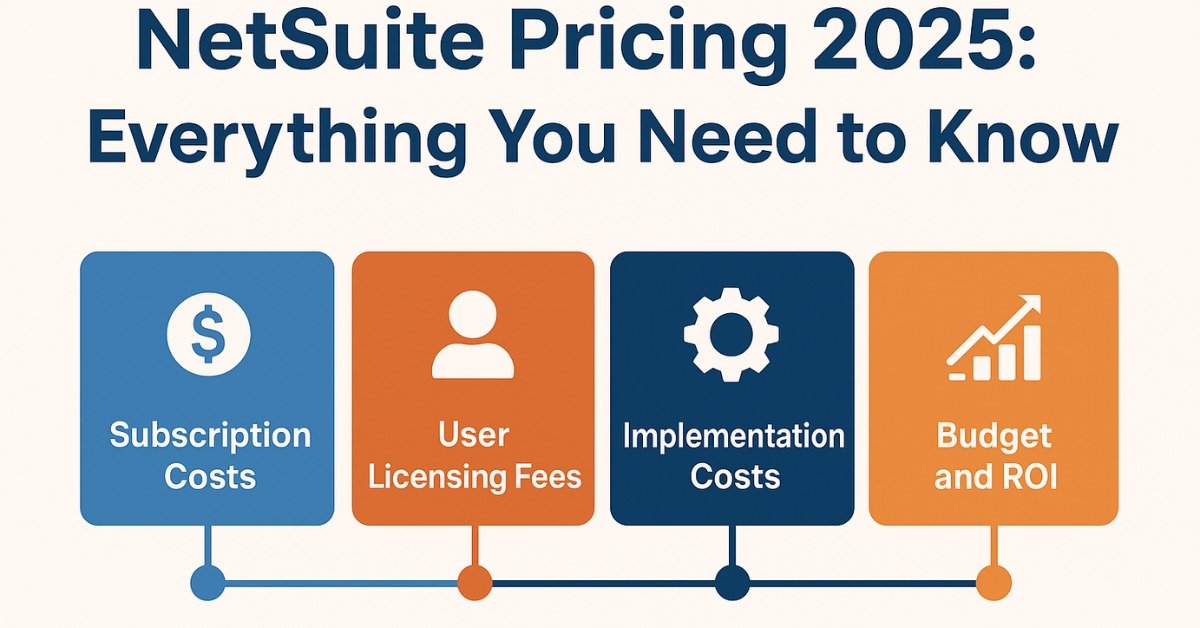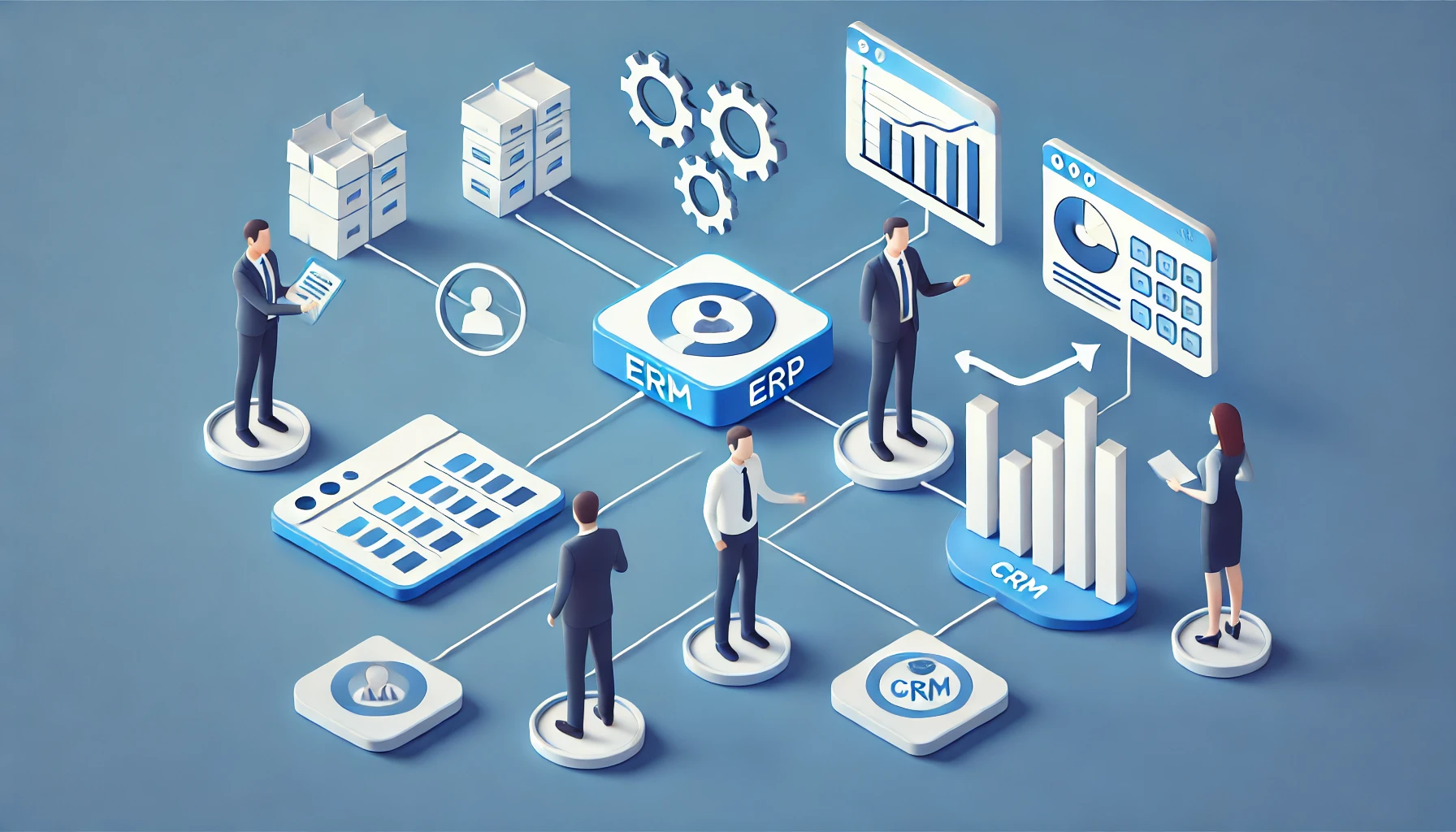
Table of Contents
ToggleIntroduction
In today’s fast-paced world of business, inventory control is everything. In a race to perfect
internal processes and bring productivity to a maximum, many companies have resorted to
more sophisticated solutions for optimal inventory management—take ERP systems, for
example. Here, we will take an in-depth look at ERP inventory management by discussing its
definition, generic characteristics, need, and the benefits it offers against operating systems
tailored for retail.

What is ERP Inventory Management?
Inventory management in ERP is a complete and integrated part of a company's enterprise
resource planning system. It defines the module or functionality in an ERP system that will
be targeted to manage and optimize various aspects falling under inventory control. Its main
purpose is to offer enterprises a well-integrated, centralized platform through which all
processes attached to inventory seamlessly integrate, offering efficiency, accuracy, and real-
time visibility.

Typical Features of an ERP Inventory Management System
The best way to understand the power of ERP inventory systems is by learning about the key features that make them a must-have for any kind of modern business.
- Real-Time Tracking: ERP inventory systems make sure that the data about stock
levels is up to date. That means a business can track the movement of its inventory in real-time. This feature is indeed critical in preventing stockouts, minimizing unnecessary stock, and optimizing the order fulfillment process. - Multi-location management: For a business that is multi-located, managing inventory across a number of different warehouses or stores is difficult. The ERP inventory management module really excels at showing the inventory in all different locations under one single unified view to enable coordination and control in all locations.
- Reorder Points Automation: Most ERP inventory systems have an automated reorder point that helps to avoid all the problems that occur due to stockouts and overstock. They send a notification for automatic reordering when the inventory level of a particular product falls below a certain threshold level for maintaining optimal stock levels.
It provides better accuracy for inventory with barcode scanning and integration of
RFID. These technologies make receiving, picking, and shipping processes much easier and reduce the prospect of human errors, hence increasing efficiency. - Demand Forecasting: The ERP inventory system makes demand predictions with clarity, using advanced analytics combined with forecasting algorithms. This leaves ample opportunity to optimize stock levels and reduce carrying costs while ensuring customers get their products any time they need them.

Do You Need an ERP to Manage Your Inventory?
The decision to implement an ERP inventory management system in your business requires
some thought about the level of requirement and the scale and growth ambitions.
Smaller businesses that do not require complicated inventory could use an independent
system to get themselves started. As companies grow, inventory management becomes much
more complicated. ERP systems can be particularly appropriate for mid-size to large
companies in providing an integrated approach to business management, putting the key
functions of finance, HR, and CRM all into one system.
Some guiding factors on whether to use an ERP for inventory management include the need
for scalability, integration with processes, and the desire for real-time inventory control and
visibility.
Benefits of a Retail-Tailored Operating System vs. ERP Inventory Management System
While probably a retail-tailored operating environment is what some businesses are after, in
relation to all-around benefits that the ERP systems afford in their inventory management,
they fall short.
- Scalability: Inventory ERP systems are designed to scale with the growth of the
business. For instance, when your company is growing, the ERP can handle increased
volumes of transactions, more products, and new business processes. In contrast, retail-oriented functionality is challenged by the changing dynamics imposed by growing enterprise operations. - Integration with other departments: The ERP system provides a standard platform
where inventory management is integrated with other major business functions. Because of this, coordination between departments would improve, hence increasing overall efficiency. Such a high level of integration may not be found in retail systems, due to which data and processes become fragmented. - Customization and flexibility: ERP inventory management modules can be highly
tailored according to specific business needs. In addition, this feature is very
important for any business, in order to accommodate or adjust the changing market
conditions and even the evolution of business strategies. On the contrary, retail- tailored systems may restrict a company in respect of customization, which may suppress the perfect alignment of the system with the company’s needs. - Comprehensive Reporting and Analytics: ERP inventory systems boast comprehensive reporting and analytics capabilities, providing valuable insights into inventory performance, demand patterns, and other key metrics. This analytical functionality gives organizations the power to make decisions supported by data. These are important areas where most retail-oriented applications are found wanting in terms of depth and breadth in reporting needed for effective analysis.
- Cost Efficiency: Although the initial move to acquire an ERP inventory management system may seem huge, long-term cost efficiency usually comes out top among retail- tailored operating systems. For instance, ERP systems wrap up different functions into a single unit, excluding the need for a number of different software solutions with their own maintenance and integration costs.
A Personalized Experience with ERP Inventory Management
Now, let’s take a moment to consider the customized experience an ERP inventory management system can extend to a business and its stakeholders. Now, imagine yourself as a business owner wanting to grow his or her business. An ERP system would, therefore, become your strategic partner, offering one unified platform that would not only help optimize inventory management but also integrate it into other critical business functions.
- Empower your decision-making: real-time insight into the level of inventory,
demand forecasts, and order status that keeps you so informed; thus, your decisions lead to business success. You can get comprehensive reports and analytics to identify trends, seize opportunities, and respond to challenges ahead of time. - Improved Customer Satisfaction: ERP inventory enhances customers satisfaction
by making sure products are available any time they are required. Demand forecast and optimization of the inventory conditions lead to efficiency in order fulfillment, hence reduced stockouts and backorders. This good customer experience can be a recipe for loyalty and repeat business. - Smoothened Operations: Imagine how much more efficient your inventory processes could get. From automated reorder points to prevent stockouts to barcode
scanning that minimizes errors in picking and shipping, the list of operational benefits is long. This efficiency saves time and reduces labor costs, adding to overall productivity. - Adaptability to change: Business operates in an ever-changing system and it is very necessary to adapt to these changes. A customized, flexible ERP inventory management system ensures that your system will grow and change with your business. Whether adding product lines, opening new markets, or adjusting to the
changing trends in consumer behavior, the ERP system can always meet the changing needs of your business. - Holistic Business Management: ERP goes beyond inventory management to offer,
as a matter of fact, a way of holistic business management. Imagine having all the aspects—integration of finance, human resources, and customer relationship
management—on one platform. You get to see the big picture of things, by which you
will make strategic decisions considering the interrelatedness of diverse aspects of business. - Regulatory Compliance: ERP inventory systems for industries bound by strict regulations, such as pharmaceuticals or food and beverage, therefore come with
regulatory compliance capabilities. It will involve the tracking of the expiration dates
of products, storage under appropriate conditions, and generation of compliance reports. - Data Security: The prime importance is for sensitive inventory data. ERP inventory
systems have the best in class data security through strict access control, encryption,
and periodic security audits. Rest assured, critical information about your business
remains inaccessible to unauthorized parties or any other form of cyber threat. - Collaboration and Communication: These two together have quite an effective impact between the players in the chain. Inventory systems in ERP will help provide superior communication by support tools with which collaboration is easy and brisk with suppliers, distributors, and internal teams. It sets up a fine and well-oriented supply chain network.
- Continuous Improvement: The design of the ERP system is based on continuous improvement. Regular updates and enhancements keep your ERP inventory management module current on leading business practices and emerging technologies. This agility will allow your business to stay abreast of the latest developments in the field.
- Training and Support: Relatively challenging to approach, transitioning a new ERP inventory system requires adequate training and support mechanisms. ERP software vendors often provide training programs before and ongoing support for the operation of this system, so your team can maximize its full capabilities. This ERP inventory management system will hence be the best solution for businesses with the intention of scientifically streamlining and managing their overall business process.
Conclusion
Even though ERP systems are a little more complicated, small enterprises with minimal
needs may functionally operate using retail-suited operating systems, but when coming to
scalability, integration capabilities, and personalized experience, ERP is a must for mid-sized
and large businesses. An ERP inventory management module is not just about buying another
new tool but a strategic investment that propels an enterprise to efficiency and further growth
in order for them to continuously succeed. Looking ahead in this dynamic business world is
to consider the transformative potential an ERP inventory management system might bring, a
dynamic solution to fit your very unique enterprise needs. Features, ranging from real-time
tracking to regulatory compliance, provided by an ERP system will assure businesses that
their inventory management will go beyond mere inventory control and completely transform
the supply chain approach of the organization. Unlock the power of ERP inventory
management for a journey of streamlined operations, empowered decisions, and unparalleled
business growth.



